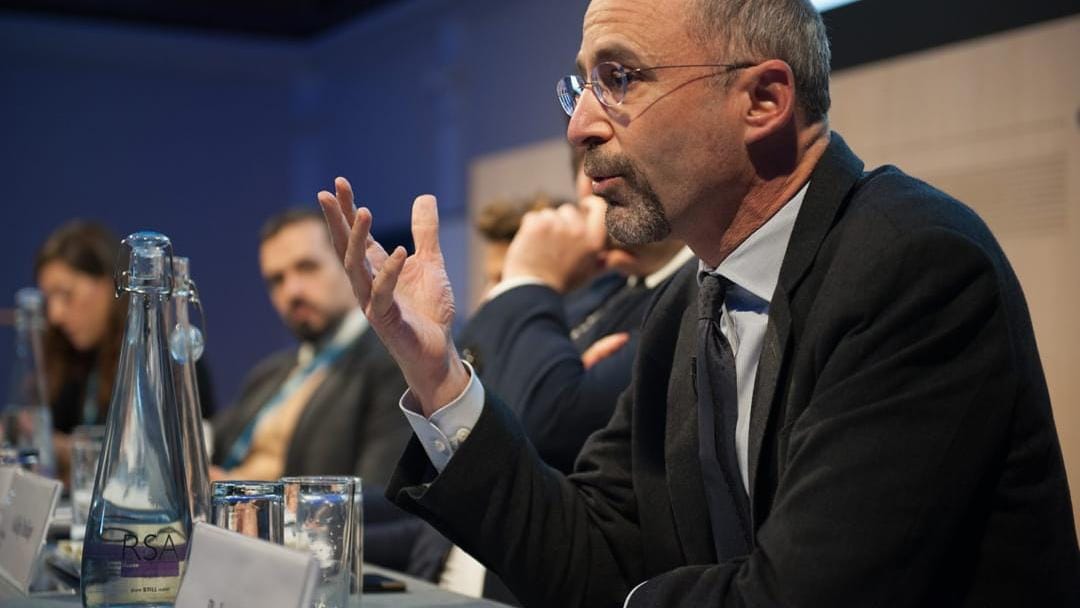by Mitchell Plitnick
No one has ever complained that the United States doesn’t pay enough attention to the Middle East. In recent years, however, one country that hasn’t gotten much attention in Washington is Lebanon. But on Tuesday, the Senate Foreign Affairs Committee’s Sub Committee On Near East, South, and Central Asian Affairs and Counterterrorism held a hearing on Lebanon. The hearing focused on US aid to Lebanon, and whether the outsized presence of Hezbollah in the Lebanese government meant that aid should be cut.
Elliott Abrams, a leading neoconservative ideologue and senior fellow at the Council for Foreign Relations, spoke in favor of reducing aid to Lebanon. Rob Malley, president of the International Crisis Group and former lead diplomat in the Clinton and Obama administrations, spoke against such measures.
Abrams painted a picture of a Lebanon dominated by Hezbollah and, by extension, Iran. “The Sunni prime minister, Saad Hariri, provides cover to Hezbollah’s domination of the state rather than a counterbalance to that power,” Abrams said. “Hezbollah is part of Hariri’s coalition government—but Hezbollah, not the government, dominates.”
In typical neoconservative fashion, Abrams called “a fantasy” the assessment of Acting Assistant Secretary of State David Satterfield who said that US aid to Lebanon is “enabling the Lebanese government to…assert its authority throughout all of Lebanese territory.” Instead, Abrams prefers the assessment of Israeli Defense Minister Avigdor Lieberman, whom he quoted as saying, “Today, the Lebanese army has lost its independence and is another unit in Hezbollah’s apparatus, and therefore, as far as we are concerned, the infrastructure of the Lebanese army and the Lebanese state is one with the infrastructure of Hezbollah.”
As a result, Abrams contended that, “The United States should reassess our military assistance and our entire policy.”
Abrams’s testimony follows a standard neoconservative line of using US aid as a method of making other countries’ decisions for them. Abrams sees Lebanon through a Likud lens: as an Iranian proxy, not as an entity unto itself.
Malley’s testimony, while overtly cordial and even, at times, friendly toward Abrams, stood in stark contrast. Malley took a broader, more pragmatic view in terms of tactics but also provided a much fuller picture of the Lebanese domestic scene.
Where Abrams painted Lebanon as essentially Hezbollah’s country in service to Iran, Malley presented a more fact-based and complex picture:
Lebanon has participated in, experienced, and suffered from the Israeli-Arab conflict, the pernicious influence of sectarianism, the rise of militant jihadism, interference from regional actors, and dramatic refugee flows. Yet Lebanon also is that rarest of examples of what so much of the Middle East is lacking: pluralism, tolerance, consensus-based politics, and an ability to maintain relations with the U.S., Iran, and Saudi Arabia. The shocks Lebanon has experienced—from more than a million Syrian refugees, or a quarter of its population, who’ve poured in through Lebanon’s eastern border, in addition to hundreds of thousands of Palestinian refugees; to a vicious war next door; to the sectarian tensions generated by that war and Hezbollah’s direct involvement in it; to the rise of jihadi militancy—would have destabilized even a sturdy country, let alone one as polarized along political and confessional lines. The fact that it continues to hold together in large part is due to memories of the recent civil war but also to the delicate and at times unsavory domestic and foreign balancing act in which it constantly engages.
Perhaps the most important piece of Malley’s testimony for the Senate was his contention that Lebanon maintains that state of affairs through a very delicate balance—one that almost certainly would be upset by a drastic cut in US aid—while also acknowledging that Hezbollah’s outsized power in the government is a disturbing reality. “Lebanon’s relative stability, as I noted, has been purchased at a disturbing cost,” Malley said. “It has entailed accommodating an armed movement, Hezbollah, founded with active participation and funding from Iran, with the explicit mission of fighting against the Israeli occupation of southern Lebanon at the time and that has been a loyal Iranian ally ever since. Hezbollah, which has developed strong social roots by successfully exploiting the historical marginalization of the Shiite community, acts with considerable autonomy in Lebanese affairs.”
Malley pointed out that a cut in US aid would not hurt Hezbollah, as whatever US funds might indirectly reach the entity are not that significant. But such a cut would hurt ordinary Lebanese as well as the Lebanese government and state’s armed forces, the LAF. He also pointed out that Abrams’s characterization of Lebanon as being essentially controlled by Hezbollah was inaccurate. “While one ought not underestimate the role Hezbollah plays in Lebanese political life, and particularly in its foreign policy, it is not coterminous with the Lebanese state, and the Lebanese state cannot be reduced to, or should be held responsible for, the actions of an actor that has largely usurped its foreign policy,” Malley said.
This leads to Malley’s conclusion:
Outside actors, the U.S. among them, should deal cautiously with Lebanese affairs; bolster the central government and its institutions, notably the LAF; mitigate risks of a new Israel-Hezbollah confrontation; reduce regional tensions through diplomatic engagement, including with Iran, all the while the putting aside more ambitious goals. This is not necessarily the most inspiring or transformational of agendas. But Lebanon is too weak, too vulnerable, too fragile, too finely balanced to be the vehicle for a transformative agenda. Lebanon is not the place where grand dreams are made. It’s where they crash.
Lebanon’s fragility is due to many factors. Some of them are historical and date back to the days of French domination, including the confessional system, which is a fundamental, but not the sole, basis of its political system. Others have evolved over the years out of a great deal of both internal and external conflict. But the Saudis, and particularly the new U.S. darling, Mohammed bin Salman (MbS) learned of the perils of interfering in Lebanon, when they tried to force the resignation of Prime Minister Saad Hariri last year. Lebanese united across the sectarian spectrum in outrage at the Saudi interference in their country, and MbS had to back off.
Hezbollah is certainly a powerful force in Lebanon. Although it is not the Iranian puppet it is often portrayed to be, it is certainly a very close partner with Iran. Whatever one thinks of Israeli and US policy, those countries understandably have grave concerns about Hezbollah’s strength.
But that should not lead to foolish decisions like the one MbS made. The Trump administration’s decision to slash aid to UNRWA in order to punish the Palestinian Authority for not genuflecting to Trump’s biased policies is already being felt in Lebanon, which is home to some 450,000 Palestinian refugees. This is on top of Lebanon trying to deal with over one million Syrian refugees that have poured into the country in recent years. Making it even worse could prove calamitous.
Lebanon has frequently paid for decisions made not only by Hezbollah but also in Riyadh, Tehran, Jerusalem, and Washington. Right now, the quiet in the country has mostly held for over a decade. Lebanon deserves the chance to preserve that. The United States needs to do everything it can to help them do that.
Photo: Rob Malley (International Crisis Group)






Elliot Abrams was inner circle of the Neo Cons who brought us the 2003 Iraq debacle, first by invading, then by ignoring the State Dept. “day-after” reconstruction program (The Future of Iraq Project). He has zero credibility. The side by side reporting of Abrams and Malley is false valuation – unbalanced. It gives far too much credit to Abrams and inadequate value to Malley.
American should get the fuck out of our business and focus on its own internal mess.
Yet more pathetically bad policy urgings from Elliott Abrams. How many trillions of dollars has the US squandered in the Middle East, due to pursuing policies pushed by Abrams? An aggressive proponent of Israeli oppression of the Palestinians, Abrams sees Iran as a problem interfering with his hopes Israel can deal with the Palestinians as it pleases.
Do the Americans realize that the neocons are agents of Russia and intend to force the US into bankruptcy?